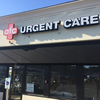Book an STD Test in Salem, NH
Own a clinic? Add your location.
Help patients book appointments with you on Solv. It's free!
20 instant-book locations

AFC Urgent Care, Methuen
AFC Urgent Care
Today
View more
AFC Urgent Care, Haverhill
AFC Urgent Care
Today
View more
AFC Urgent Care, North Andover
AFC Urgent Care
Today
View more
AFC Urgent Care, Hudson
AFC Urgent Care
Today
View more
AFC Urgent Care, Chelmsford
AFC Urgent Care
Today
View more
Today
View more
AFC Urgent Care, Bedford
AFC Urgent Care
Today
View more
AFC Urgent Care, Burlington
AFC Urgent Care
Today
View more
Today
View more
Woburn Urgent Care
Woburn Urgent Care
Today
View more
CVS Clinic with Carbon Health Urgent Care, Beverly
CVS Clinic with Carbon Health Urgent Care
Today
View more
American Family Care, Saugus
American Family Care
Today
View more
AFC Urgent Care, Arlington
AFC Urgent Care
Today
View more
Today
View more
AFC Urgent Care, Swampscott
AFC Urgent Care
Today
View more
American Family Care, Malden
American Family Care
Today
View more
AFC Urgent Care , Waltham: Trapelo Rd
AFC Urgent Care
Today
View more
CVS Clinic with Carbon Health Urgent Care, Swampscott
CVS Clinic with Carbon Health Urgent Care
Today
View more
AFC Urgent Care, Revere
AFC Urgent Care
Today
View more
AFC Urgent Care , Medford
AFC Urgent Care
Today
View moreOwn a clinic? Add your location.
Help patients book appointments with you on Solv. It's free!
Overview of STD Testing in Salem
Who should get tested for STDs?
The Centers for Disease Control and Prevention recommends that everyone between the ages of 13 and 64 get tested for STDs at least once as part of their routine health care. However, some individuals may need to get tested more often. This includes sexually active women under 25, men who have sex with men, and anyone who has multiple or new sex partners. If you live in Salem, NH, or surrounding areas like Methuen, Windham, Lawrence, Haverhill, or North Andover, it's important to get tested if you fall into these categories, according to the CDC.
Importance of getting tested
Getting tested for STDs is crucial for a number of reasons. Firstly, many STDs do not show symptoms, meaning you could be infected and not know it. Secondly, untreated STDs can lead to serious health complications, such as infertility and increased risk of HIV. Lastly, knowing your STD status can help prevent the spread of these diseases to others.
Std testing options in Salem, NH:
Urgent care and walk-in clinics
Urgent care and walk-in clinics are a convenient option for STD testing in Salem, NH. These clinics often offer same-day appointments and extended hours, making it easy to fit testing into your busy schedule. One highly-rated option in the area is PhysicianOne Urgent Care in nearby Waltham, MA. You can book same-day and next-day appointments at this location through Solv’s website and mobile app.
Primary care providers
Primary care providers are another good option for STD testing. They can provide comprehensive care and follow-up treatment if necessary. However, it's important to note that not all primary care providers offer all types of STD tests, so it's important to ask what tests are available when you make your appointment.
Free STD testing and community health centers
For those without insurance or who are concerned about cost, free STD testing is available at community health centers in and around Salem, NH. These centers often offer sliding scale fees based on income, making testing more affordable for everyone.
At-home testing
At-home STD testing is another convenient option. These tests can be ordered online, done in the privacy of your own home, and then sent back to a lab for results. This option is particularly beneficial for those who may feel uncomfortable going to a clinic or who have difficulty finding time to visit a healthcare provider.
Prevalence of STDs in Salem
While specific data for Salem, NH, is not readily available, the CDC reports that STD rates in the United States have been on the rise in recent years. In nearby Essex County, where Salem is located, and surrounding counties such as Hampshire, Worcester, Hampden, Berkshire, and Franklin, STD rates are also a concern. Regular testing is crucial in these areas to prevent the spread of these diseases and to ensure prompt treatment if necessary.
Risk factors related to STDs in Salem
Risk factors for STDs in Salem, NH, are similar to those in other parts of the country. These include having unprotected sex, having multiple sex partners, and having a history of STDs. Certain demographic factors, such as being under the age of 25, can also increase risk. It's important to understand these risk factors and to get tested regularly if you are at higher risk.
Solv has strict sourcing guidelines and relies on peer-reviewed studies, academic research institutions, and medical associations. We avoid using tertiary references.
STD Testing FAQs
Where should I get an STD test in Salem?
In a doctor's office, a health clinic, or an urgent care center, you can get an STD test. If you're experiencing symptoms, it's best to visit a doctor's office, where they can also treat you or issue you a prescription. While some Salem clinics and urgent care centers allow walk-in appointments, it's advisable to make an appointment ahead of time to prevent excessive waits.
How long does it take to get STD test results?
Various testing are required for various STDs. Depending on the type of STD test you took, you may receive your results in two to ten days. Some outcomes may be immediately available. Your doctor may be able to diagnose an STD through a physical examination. In some cases, your doctor's office may only contact you if your test results are positive.
How much does an STD test cost in Salem?
The cost of STD testing is governed by several factors, including where you are tested, the type of test you need, and if you have health insurance. Some Salem clinics may offer free testing or testing on a sliding scale based on your income. Because of the cost, don't put off obtaining an STD test. With your doctor's office, discuss the cost and payment choices. Delaying STD treatment may have catastrophic implications.
Does insurance cover STD testing in Salem?
The cost of STD testing is governed by a number of factors, including the location of the test, the type of test required, and whether or not you have health insurance. Some clinics may provide free or sliding-scale testing, depending on your income. Don't let the expense of an STD test deter you from getting one. With your doctor's office, discuss the price and payment choices. Delaying STD treatment could have catastrophic ramifications.
How do they test for STDs in Salem?
There are around 20 different forms of STDs, each with its own set of diagnostic tests. No single test exists that can detect all types of STDs. Your doctor can help you figure out which tests you'll need. In STD testing, a blood sample or a urine sample may be used. Your doctor may also take a swab from the inside of your cheek, your vaginal area, or another potentially infected place.
What STDs can be detected by a blood test?
Blood tests are used to diagnose hepatitis B, hepatitis C, herpes, HIV, and syphilis. In a laboratory, a technician examines a blood sample for antibodies that the body has produced in reaction to disease. The virus's DNA can also be detected by several blood tests. Remember that if you've recently been exposed to an STD and your body hasn't yet produced antibodies, you could test negative even if you have the disease.
Can I get a same-day appointment for STD testing in Salem?
Many Salem, NH urgent care providers offer same-day and next-day appointments, which you may book through Solv. To make healthcare more accessible to everyone, we collaborate with thousands of top-rated local providers. Our physician partners understand that waiting days, if not weeks, for an appointment isn't always the best option, and they share our commitment to simple, accessible health care.
How can I book an STD test on Solv?
To find a healthcare practitioner in your area, simply enter your location and search for "STD test" on our website. A list of providers and available appointments can be found on the following page. Choose the most convenient time and location for you. Make it clear that you've come for STD testing.
How long does an STD test take in Salem?
If you have a specific STD, inform your doctor so that the necessary test can be scheduled. Otherwise, they'll help you figure out which tests you'll need. The nurse or doctor simply needs a few minutes to get a blood sample, a urine sample, or a swab from the probable infection site.
Can I test myself for STDs at home?
Although there are several STD home tests available, not all of them are accurate. The accuracy of any STD test is determined by the quality of the sample taken. For home STD kits, a blood sample, a urine sample, or both are frequently required. Because doctors and nurses have more experience collecting samples, traditional in-office STD testing is the most accurate.
Related Searches
Drug Test in Salem, NH
A1C Test in Salem, NH
DOT Exam in Salem, NH
Ear Wax Removal in Salem, NH
Pregnancy Test in Salem, NH
Sports Physicals in Salem, NH
DNA Test in Salem, NH
Blood Test in Salem, NH
Lab Tests in Salem, NH
Diabetes Test in Salem, NH
Flu Test in Salem, NH
Basic Metabolic Panel in Salem, NH
Diagnostic Test in Salem, NH
Cholesterol Test in Salem, NH
Glucose Test in Salem, NH
CMP Test in Salem, NH
Allergy Testing in Salem, NH
Strep Test in Salem, NH
TB Test in Salem, NH
Urinalysis in Salem, NH
Vitamin D Test in Salem, NH
H Pylori Test in Salem, NH
Mono Test in Salem, NH
Pulmonary Function Test in Salem, NH
RSV Test in Salem, NH
Thyroid Test in Salem, NH
Urgent Care in Salem, NH
Pediatric Urgent Care in Salem, NH
COVID-19 Pill in Salem, NH
COVID-19 Testing in Salem, NH
Retail Clinic in Salem, NH
Dermatologists in Salem, NH
Hepatitis test in Salem, NH
Aetna Urgent Care
Blue Cross Blue Shield Urgent Care
Cigna Urgent Care
COVID-19
Flu
United Health Urgent Care
» All services in Salem, NHFind STD testing
Nearby cities
Everyday Healthcare, Simplified
Expert advice to help you live your best life







